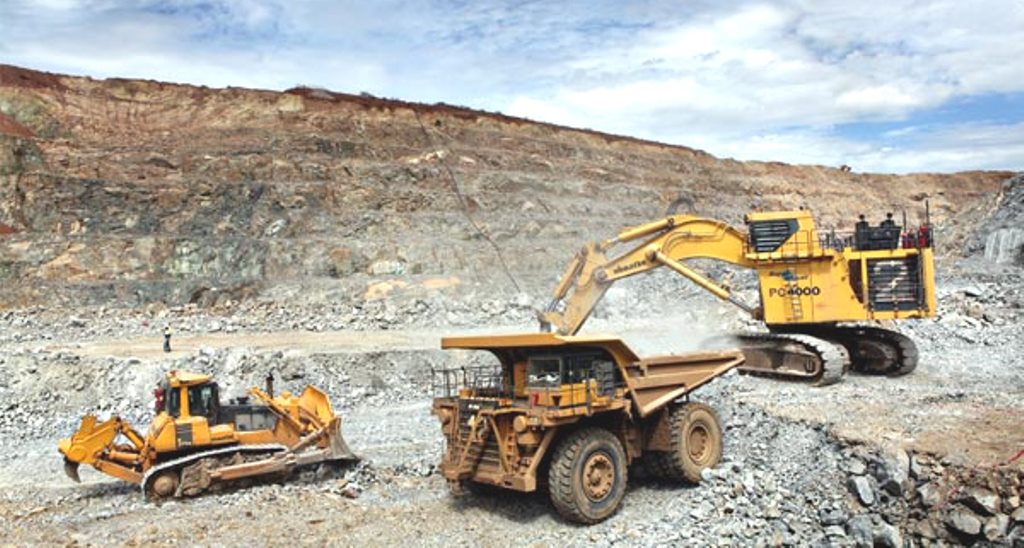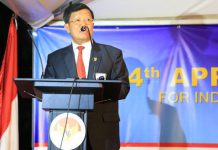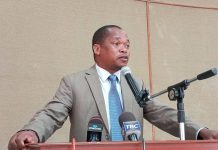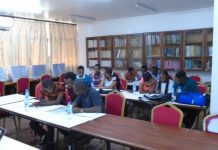AfricaPress-Tanzania: TANZANIAN mining sector manifests its future new direction thanks to effective implementation of agreements and properly managed law reforms, say experts.
President John Magufuli’s orchestrated reforms in the extractive industry have continued to pay off after Bar- rick Gold Corporation paid 100m US dollars to Tanzania on Tuesday.
It was the first tranche of the 300m US dollars owed to the Tanzanian government after the sides agreed in 2019 to settle allegations of unpaid tax.
The initial settlement of 250bn/-as reported by Finance and Planning Minister, Dr Philip Mpango comes barely months after the two parties signed an agreement to form a joint venture company, Twiga Minerals Corporation.
The new company to oversee the management of Barrick’s mining operations in the country is 84 per cent owned by Barrick and 16 percent by the government.
Apart from settlement of the tax claims, the government of Tanzania and Barrick Gold reached an agreement to share the proceeds of the mines on a 50/50 basis through the newly formed Twiga Company.
In telephone interviews with the developments, saying the country was now reaping deserved benefits from her extractive industry “I think that those who thought that Barrick Government agreement wouldn’t materialize, they can now see things happening since people say seeing is believing,” stated Mr Renatus Nsangano, a stakeholder in the mining sector.
Mr Nsangano, who is Managing Director of Nsangano Gold Mine in Geita Region, hailed the fifth-phase government for success attained in agreement with the Barrick.
“It’s something that we never imagined could happen because of encountered dif- ficulties, but now the government has made it,” he said.
With ongoing developments, Mr Nsangano was upbeat that the extractive industry would become a key sector in contributing to the government’s coffers and therefore bring development changes contrary to its past effects.
“Where we are heading to is better than where we are coming from. I am happy because the government has dared and now we can see the results,” he explained, while calling upon fellow Tanzanians to keep politics aside and support the government’s development plans.
Former board chairman of the State Mining Corporation (STAMICO), Ambassador Alexander Muganda, believes that the new developments in the sector were clear indications that investors now understand the country’s mining reforms. “As a country, we must continue insisting on mu- tual benefits of the resources.
What is happening in the mining sector proves that inves- tors and the government are now on the same page,” as- serted Ambassador Muganda.
For his side, senior lecturer at Mzumbe University Dar es Salaam Campus College (MUDCC), Dr Kanty Mtei said mining sector reforms are commendable because they are meant to ensure the nation benefits more from her resources. “In the past investors ben- efited more, it’s good that changes were made in the le- gal framework,” he said.
Dr Mtei advised fast- tracking of investment in local mineral smelters to garner more benefits than exporting raw minerals. In February 2019 a series of changes were made to Tanzanian mining laws and regulations.
The government, thus, amended the Mining Act which, among other provi- sions, raised the royalty rate from 4 to 6 percent with respect to minerals exports such as gold, copper, silver and platinum.
Also, it made it mandatory for all mining licensees or special mining license hold- ers to give the government at least a 16 percent free carried interest in the capital of their companies.
As per the new mining legislation, the Government is entitled to acquire (in to- tal) up to 50 percent of the shares in a mining company, proportional with the quantified value of tax expenditures incurred by the Government in favour of the mining com- pany.
These amendments also established the Mining Commission which replaces the Mining Advisory Board (Board).
The Commission, apart from having advisory func- tions, has been empowered to issue licences, regulate and monitor the mining industry and operations, and ensure orderly exploitation and ex- ploration of minerals.
The Commission is empowered to analyse and value the concen- trates and thereafter the concentrates will be processed within Tanzania.
Local content is also stip- ulated in the new mining law, with the mineral right holder required to buy goods which are produced in Tanzania or the services that are rendered by local companies or citi- zens.
Despite its relatively low returns, the extractive industry remains one of the key economic sectors, with a lot of potential to lift Tanzania’s economic status.
Currently, the mining sector’s contribution to GDP is estimated at 3.5 percent. Speaking earlier this year, Prime Minister Kassim Majaliwa said the mining sector was expected to contribute 10 percent to the gross domes- tic product (GDP), by 2025 thanks to ongoing reforms.
Minerals contribution to the economy grew by 13.7 percent last year, according to Tanzania’s report on the state of the economy for 2019.
The government has taken a number of measures to boost mining revenues, including establishing miner- als trading centers across the country to control smuggling of the precious gems out of the country.







